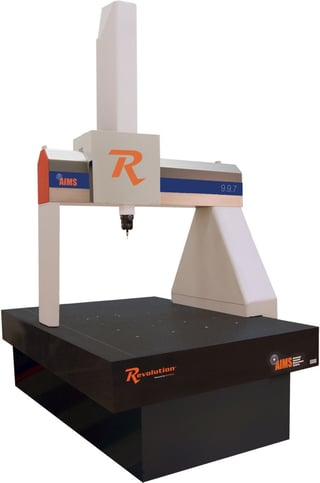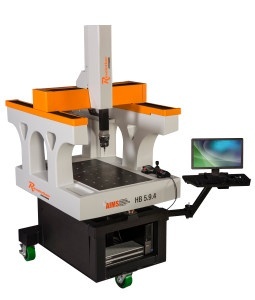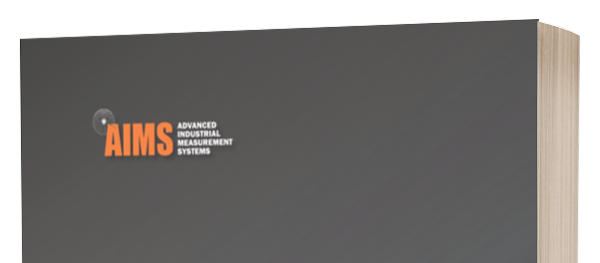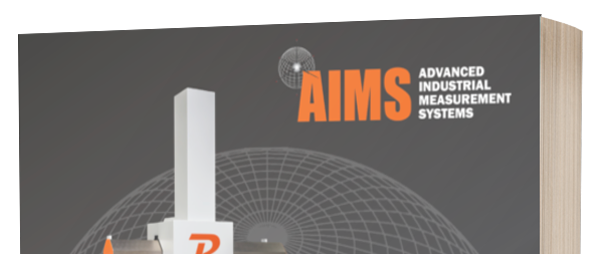The global market for CMMs is expected to reach U.S. $2.9 billion by 2020, according to Coordinate Measuring Machines: A Global Strategic Business Report. Authors Global Industry Analysts Inc. state that “growth will be driven by the acute need for precision dimensional measurement and validation of geometric accuracy in manufacturing automotive, aerospace, military and other industrial equipment and components.”
According to the report, companies are looking at quality control more closely than ever due to the demand for higher product quality and fewer defects. Large volume manufacturers in particular are budgeting considerable resources to implement methodologies built on advanced quality control concepts and technologies—like CMMs. To stay a step ahead of the competition, it's crucial that manufacturers take steps to guarantee part quality, design and measurement specifications. The trend is driving development of smaller CMMs that can take measurement activity from the lab to the factory floor.
“This shift facilitates the integration of component inspection right into the production process, improving product quality, reducing defects in production and improving process efficiency,” the report states.
 Two recently introduced CMMs—one for the laboratory and one for the shop floor—are helping manufacturers reduce downtime and ownership costs while providing 5-axis scanning at the submicron level. Here’s how. The Revolution LM series is the industry’s first linear motor-driven CMM with Renishaw REVO 5-axis scanning measurement capabilities. Unlike conventional machines with belts and pulleys, the LM’s linear motor configuration gives manufacturers a laboratory grade CMM that requires virtually no maintenance.
Two recently introduced CMMs—one for the laboratory and one for the shop floor—are helping manufacturers reduce downtime and ownership costs while providing 5-axis scanning at the submicron level. Here’s how. The Revolution LM series is the industry’s first linear motor-driven CMM with Renishaw REVO 5-axis scanning measurement capabilities. Unlike conventional machines with belts and pulleys, the LM’s linear motor configuration gives manufacturers a laboratory grade CMM that requires virtually no maintenance.
Renishaw 5-axis probe technology is able to scan five times faster than conventional touch probes. AIMS has integrated a granite work plate into the LM’s frame and constructed the CMM’s mobile bridge out of aluminum for higher rigidity and lower inertia. These features provide higher accuracy and repeatability. A large Z-axis ram, also produced from aluminum, gives customers the flexibility to use a variety of motorized probe heads. The margin of error or hysteresis is minimized because the LM’s steel optical scales float in an aluminum carrier.
As the market research report above pointed out, speed to market is another issue that manufacturers grapple with. Parts are becoming more complex with tighter tolerances while customer lead times continue to shrink. Designed and built around Renishaw 5-axis technology, the Revolution HB is the only mobile 5-axis CMM on the market. Part inspections can sometimes take two to three days using conventional methods. By taking precision measurement to the production floor, the Revolution HB is able to cut inspection time from days to minutes for applications such as aerospace components. Best of all, manufacturers gain speed without sacrificing accuracy.
 Constructed with a polymer-cast base and a roll-around stand with casters that can be locked in place, the Revolution HB is easy to move. The machine runs on standard 110 volt power, so the need for shop air is eliminated. Built-in vibration resistance, mechanical bearings and thermal stability give the Revolution HB the durability it needs to withstand the rigors of shop floor use. The CMM features a Renishaw PH20 probe head which provides superior accuracy and repeatability and performs three times faster than conventional probe heads.
Constructed with a polymer-cast base and a roll-around stand with casters that can be locked in place, the Revolution HB is easy to move. The machine runs on standard 110 volt power, so the need for shop air is eliminated. Built-in vibration resistance, mechanical bearings and thermal stability give the Revolution HB the durability it needs to withstand the rigors of shop floor use. The CMM features a Renishaw PH20 probe head which provides superior accuracy and repeatability and performs three times faster than conventional probe heads.
So whether you need coordinate measuring machine capabilities in the lab or on the production floor, we look forward to speaking with you about your needs and how we might be able to help you thrive in a changing marketplace.


